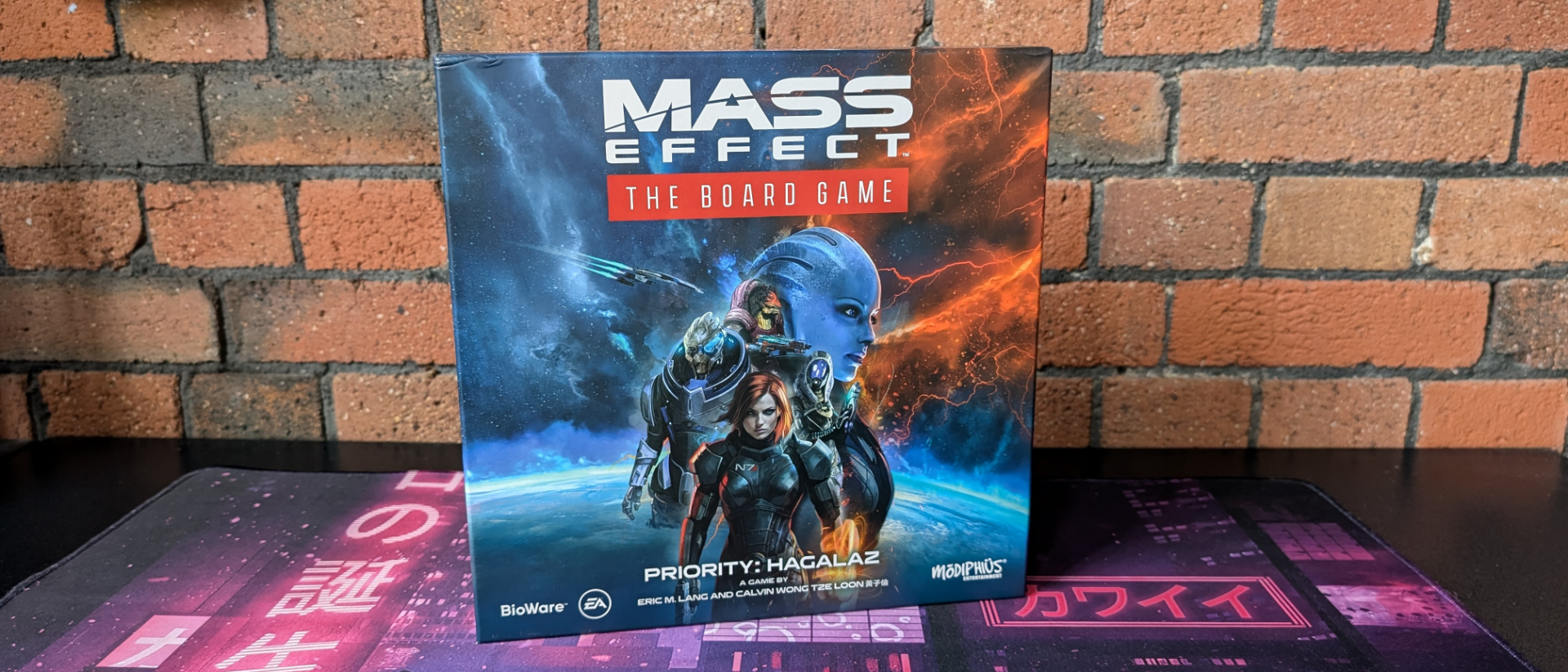
Price: $51/£40
Type: Co-operative sci-fi roleplaying
Players: 1-4
Recommended age: 14+
Time per game: 45-60 minutes
Complexity: 5/10
Designers: Eric M. Lang, Calvin Wong Tze Loon 黃子倫, David Benzal
Publisher: Modiphius Entertainment
It's been 17 long years since we last cruised around the galaxy aboard the SSV Normandy, but we're finally back thanks to Mass Effect: The Board Game — Priority: Hagalaz.
Designed by Eric M. Lang (XCOM: The Board Game, Star Wars: The Card Game) & Calvin Wong Tze Loon, and published by Modiphius Entertainment, the Mass Effect board game is a cooperative, story-driven adventure game for 1 – 4 players. You take control of Commander Shepard and a selection of their squadmates to battle your way through a series of missions that make up a branching campaign.
The campaign is set during the events of Mass Effect 3, so it's basically an extra side mission that Shepard took on when they were bumbling about trying to build the Crucible. If you're a bit rusty on the plot — hey, it's been 17 years — then check out the Mass Effect: Legendary Edition remaster which we slammed straight onto our best space games list. But do we have another addition to our best space board games list on our hands?
I should go… and review the Mass Effect board game.
Mass Effect: The Board Game: What's in the Box & Setup
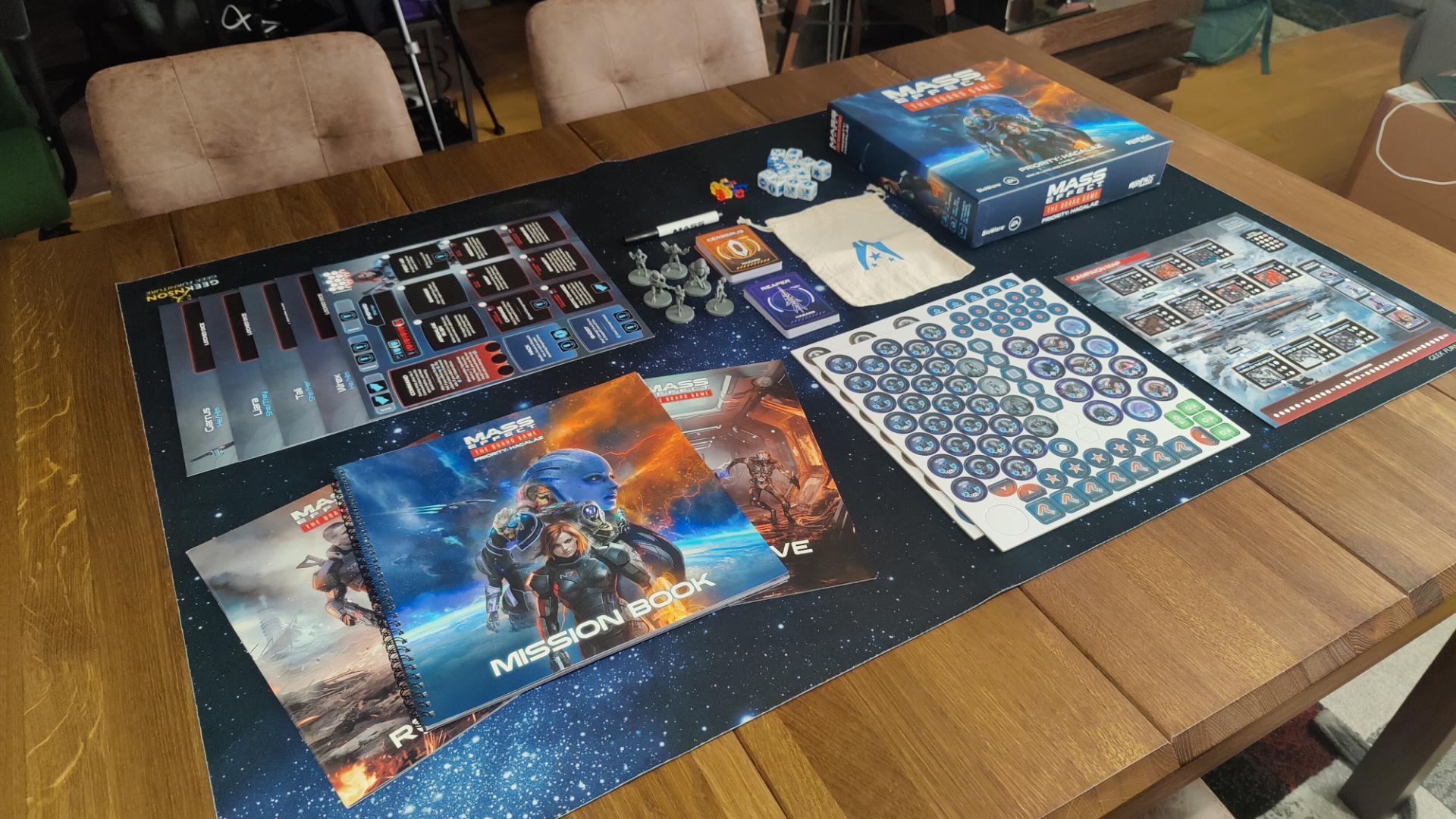
Inside the box, you'll find the campaign map board, 6 miniatures, 5 squadmate sheets, 14 special dice, 64 hazard cards, a fabric bag, a marker pen, and a huge assortment of tokens. There is also a trio of books: the main rulebook, a narrative textbook, and the mission book.
The miniatures are the stars of the show, recreating Mass Effect's most iconic characters in tiny plastic form. You get Wrex, Garrus, Liara, and Tali along with two different models for Commander Shepard, depending on if you want to play as a male or female Shepard. They're wonderful sculpts with dynamic poses, made from a hard plastic that should take paint nicely if you're so inclined — I can't wait to paint mine up.
You can also get miniatures for all the enemies in the game, but they're sold separately. Buying them all will set you back a staggering $308 / £240 — that's six times the cost of the base game — so unless you're a hardcore fan of the game, I'd recommend sticking to the cardboard tokens for the foes.
The character sheets and campaign tracker are made from glossy paper, allowing you to write on them with the included dry-erase marker. This means you can reuse all of the in-game aids between different campaigns as you can just wipe them clean when you're finished. You can print out a physical paper sheet using a QR code too.
Playing a game of the Mass Effect board game
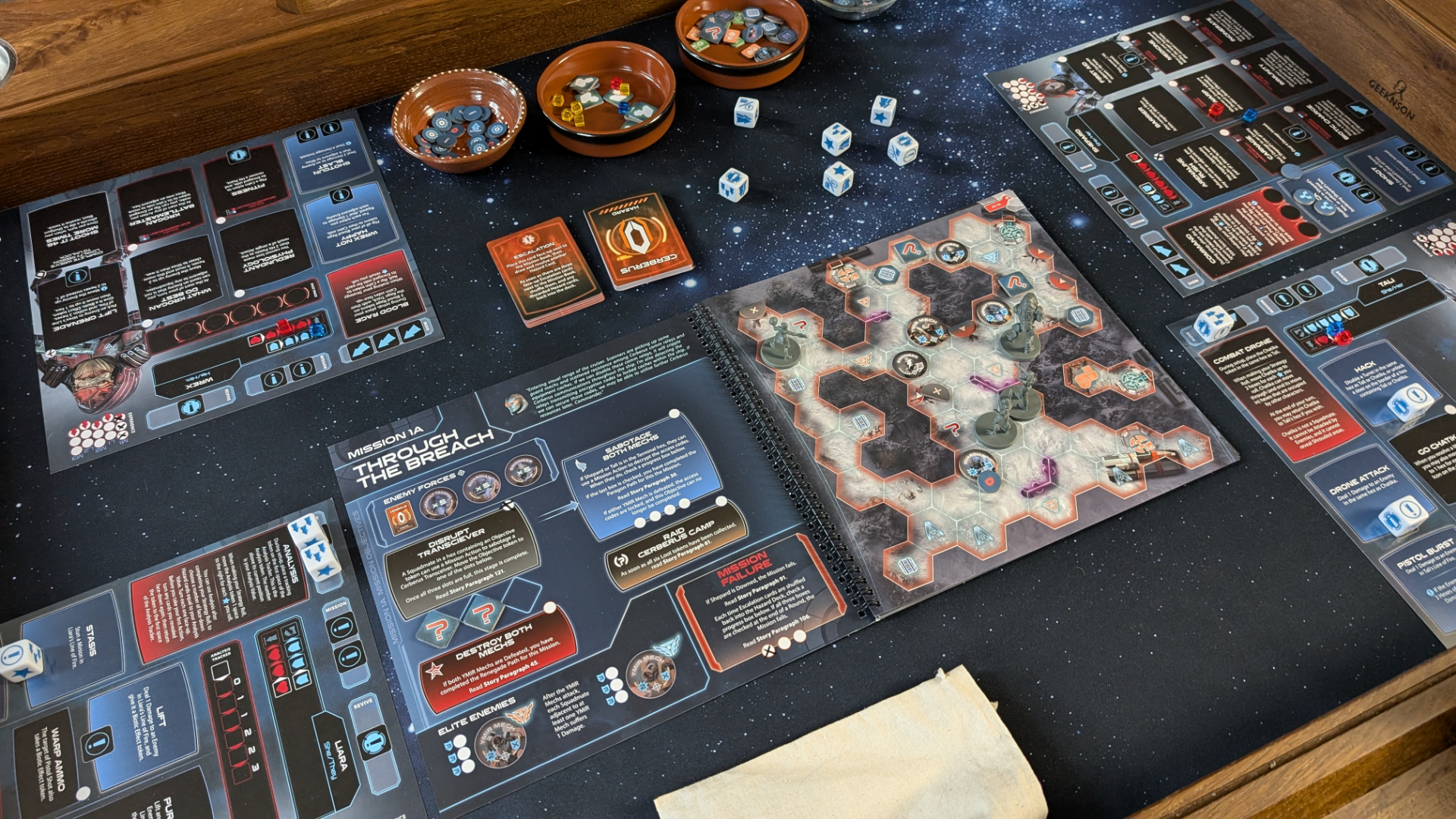
The Mass Effect board game is a mini-RPG in a box, with a campaign system that strings together three to five missions: three main missions which are mandatory, and then two optional "loyalty" missions which you can do to unlock bonus abilities for your squadmates.
There are nine main missions to choose from (three each for the first, second, and third slots in the campaign) and four total loyalty missions, which means you won't even come close to seeing everything the game has to offer in a single campaign. I simply love seeing this kind of replay value in a board game.
All of the missions, and the maps that they take place on, are contained within the mission book. It's an elegant system for keeping the size of the game down while allowing for tons of variety in map layout. It also keeps everything nice and simple, each mission's unique rules and win conditions are listed right there next to the game board where everyone can see them.
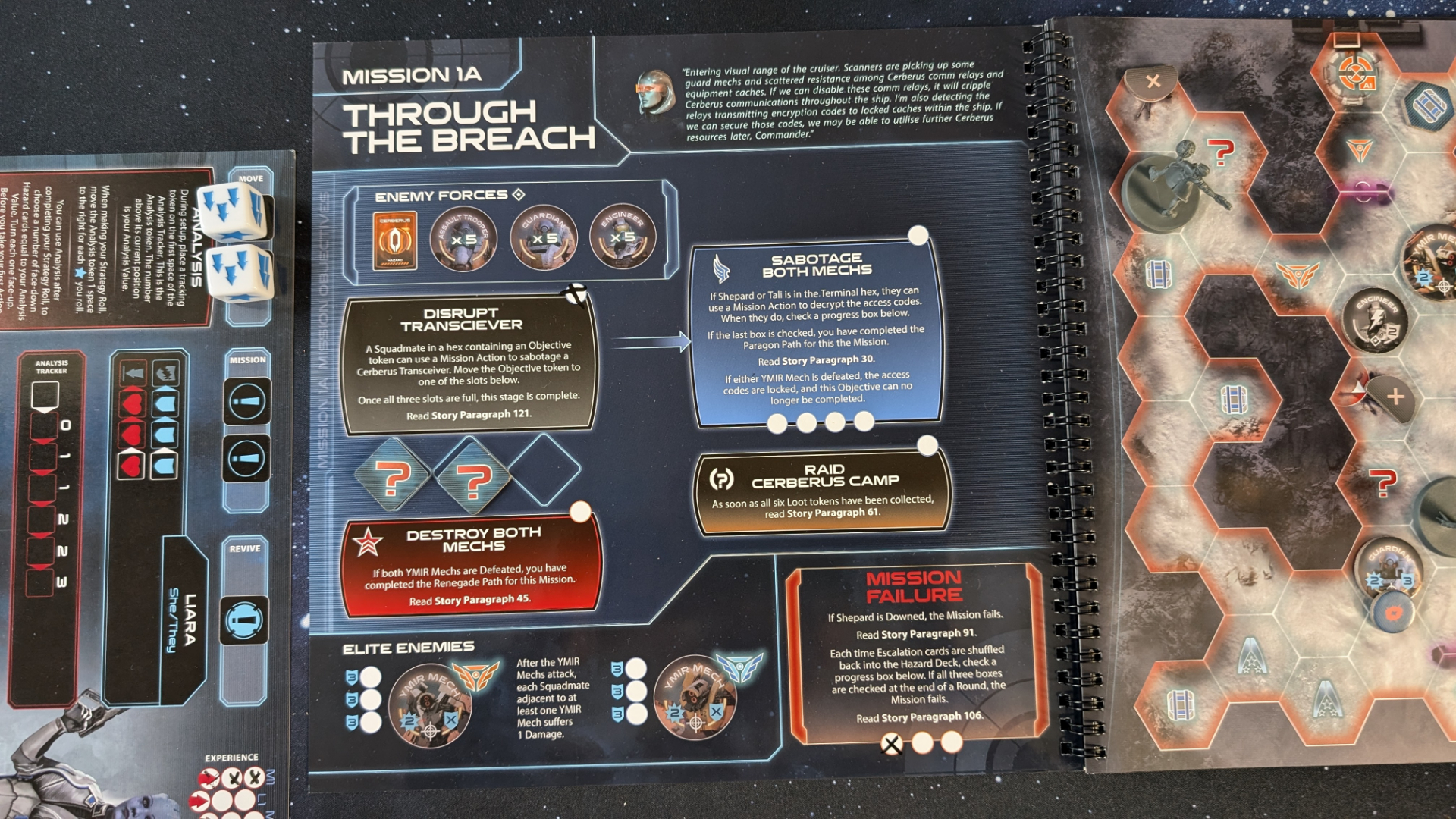
Amongst those unique rules you'll find the two different win conditions, bringing in another classic mechanic from the video game: choosing between Paragon and Renegade. Renegade objectives tend to be the scorched earth options — shoot first and ask questions never — whereas the Paragon route typically requires a more cerebral approach. The opening mission of our campaign was a perfect example of this; the paragon objective needed us to perform a multi-stage hack to disable a pair of Cerberus mechs, while the Renegade option was just to blow them up.
Your route can affect how later missions play out, giving you different buffs depending on your alignment. These various ways to play each mission also stack another level of replayability onto the game.
OK, that's how the campaign works, but what about the moment-to-moment gameplay of each mission? In Mass Effect, the first player rolls twelve strategy dice to determine which actions they can take, choosing three to use in their turn. Each dice face has one or more symbols representing their uses — movement actions, standard actions, enhanced actions, and core ability— and you need to place them next to the corresponding slots on your player board to use that action.
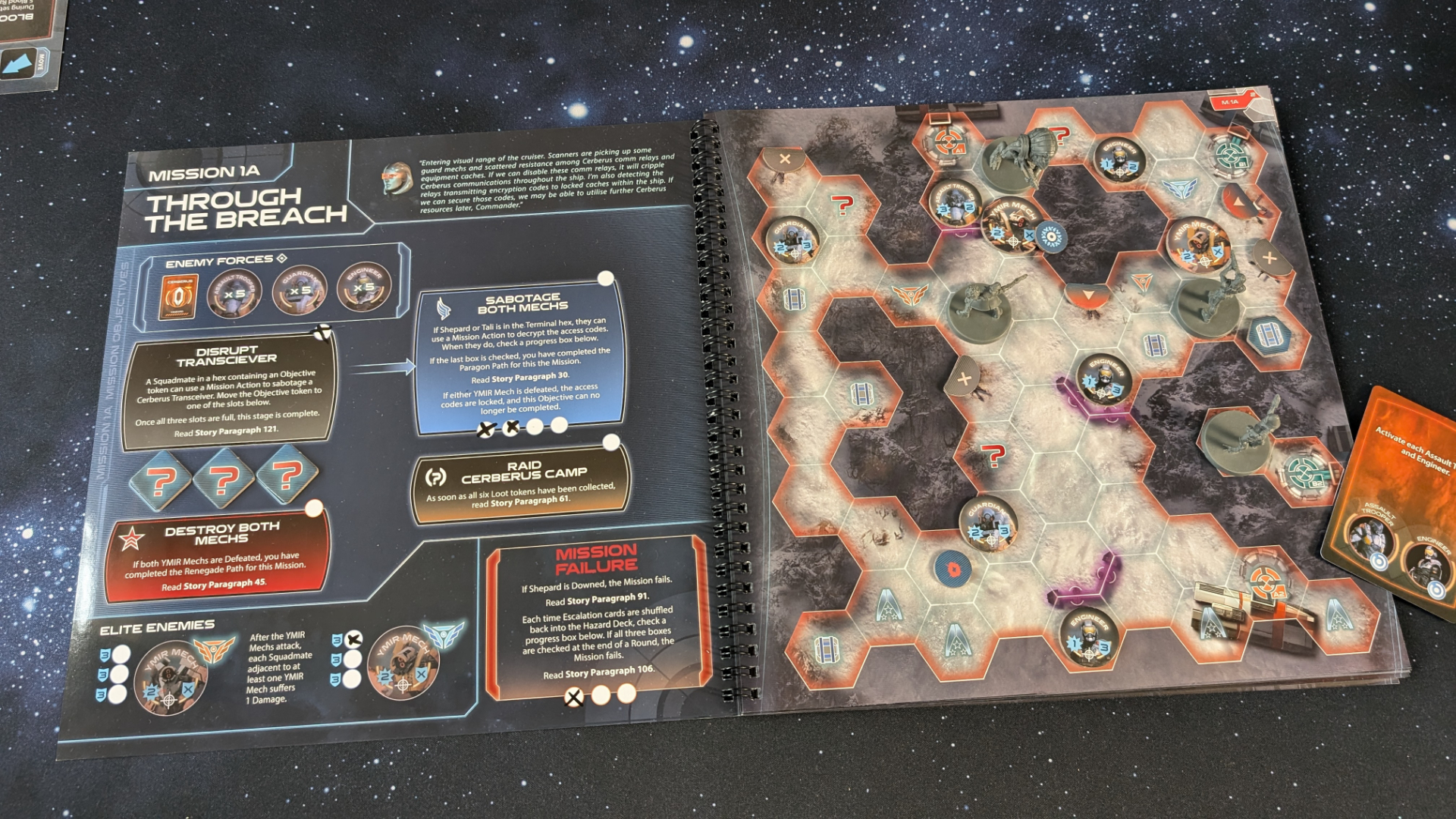
Players share the dice, meaning the pool gets smaller as you move around the table in turn order, but you reroll them each time (with the option to freeze one dice from the previous player's pool). This means early players have a better shot at getting things done, as the final player in a four-player game only gets to roll three dice. This means you'll need to work together and plan out your turns, getting the important stuff done early, or even leaving a die you might want in the pool to guarantee that the player behind you can use it.
Every character has their own particular set of powers and stats, and fair play to the game designers here as they've managed to make each of them feel unique and, more importantly, feel like the characters from the games: Wrex is a tanky brute in combat, but he often lacks finesse; Tali is great at hacking, and can even take control of enemies with her drone; Liara is the master of manipulation, using her biotic powers to stun foes, although she's a bit of a glass cannon, while Garrus is a marksman and skirmisher.
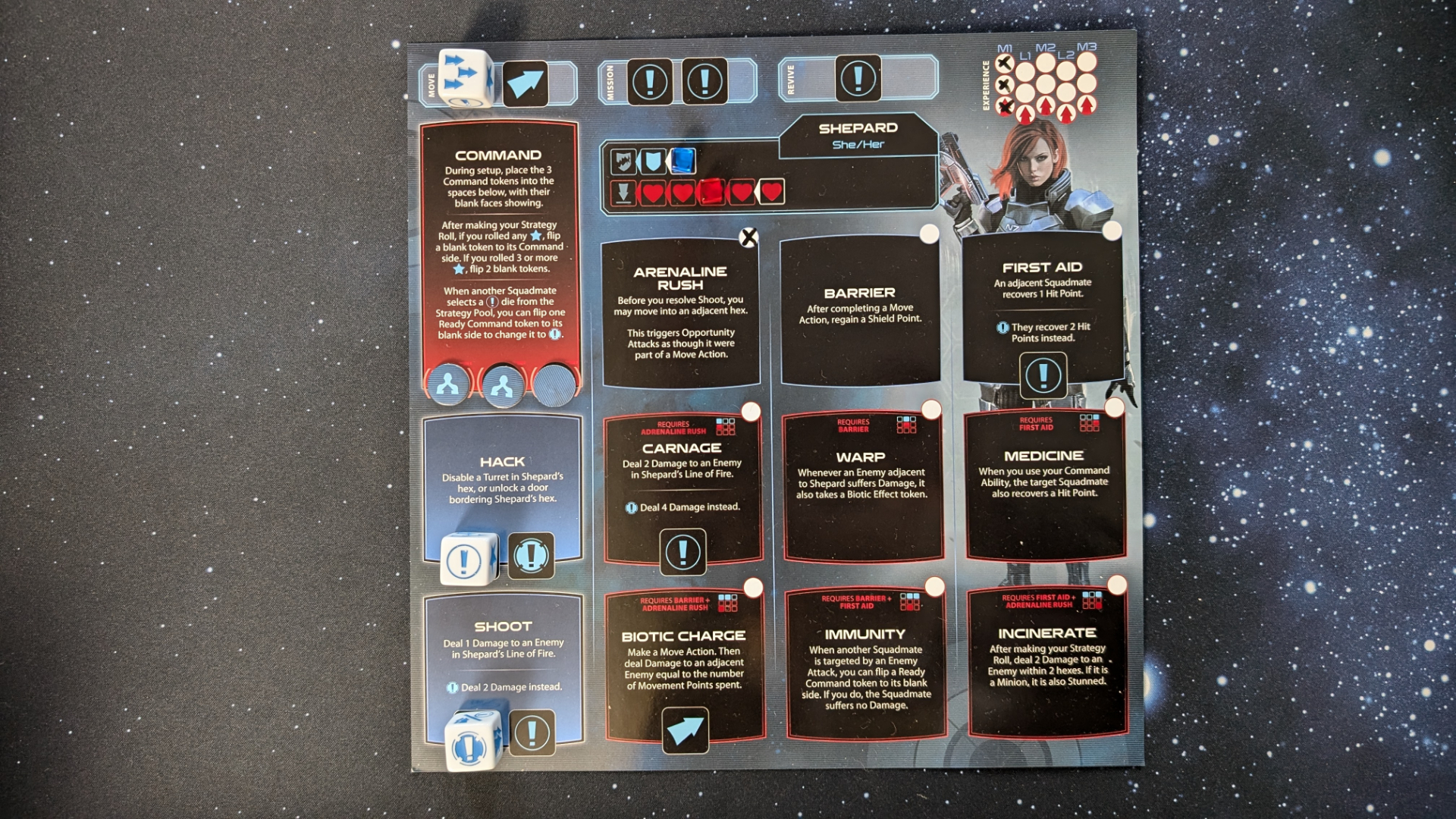
Meanwhile, the indomitable Commander Shepard leads the team, with a strong suite of powers and abilities that buff the rest of the squad. They're the most versatile team member, but this is offset by the fact that they can't be incapacitated. If anyone else loses all their health, they can be revived, but if Shepard goes down, it's game over. Again, just like in the games.
At the end of each player's turn, a hazard card is drawn from the deck. This is how the enemies on the battlefield are activated. Each card will instruct you to activate a certain group of foes, and the rulebook determines how they prioritize which player to attack. They'll typically try to smack the turn player if they can, before defaulting to the nearest player. This predictability in enemy behavior allows you to plan ahead and know which players are going to be vulnerable.
Overall, I enjoyed my run through the Mass Effect board game, and the squad is already clamoring to give it another go, which is always a great sign for a board game. It might be a bit simplistic for some heavy-duty board gamers, and the random elements with dice will always turn off a certain crowd, but it succeeds in bringing the Mass Effect experience to the tabletop.
Should you buy the Mass Effect board game?
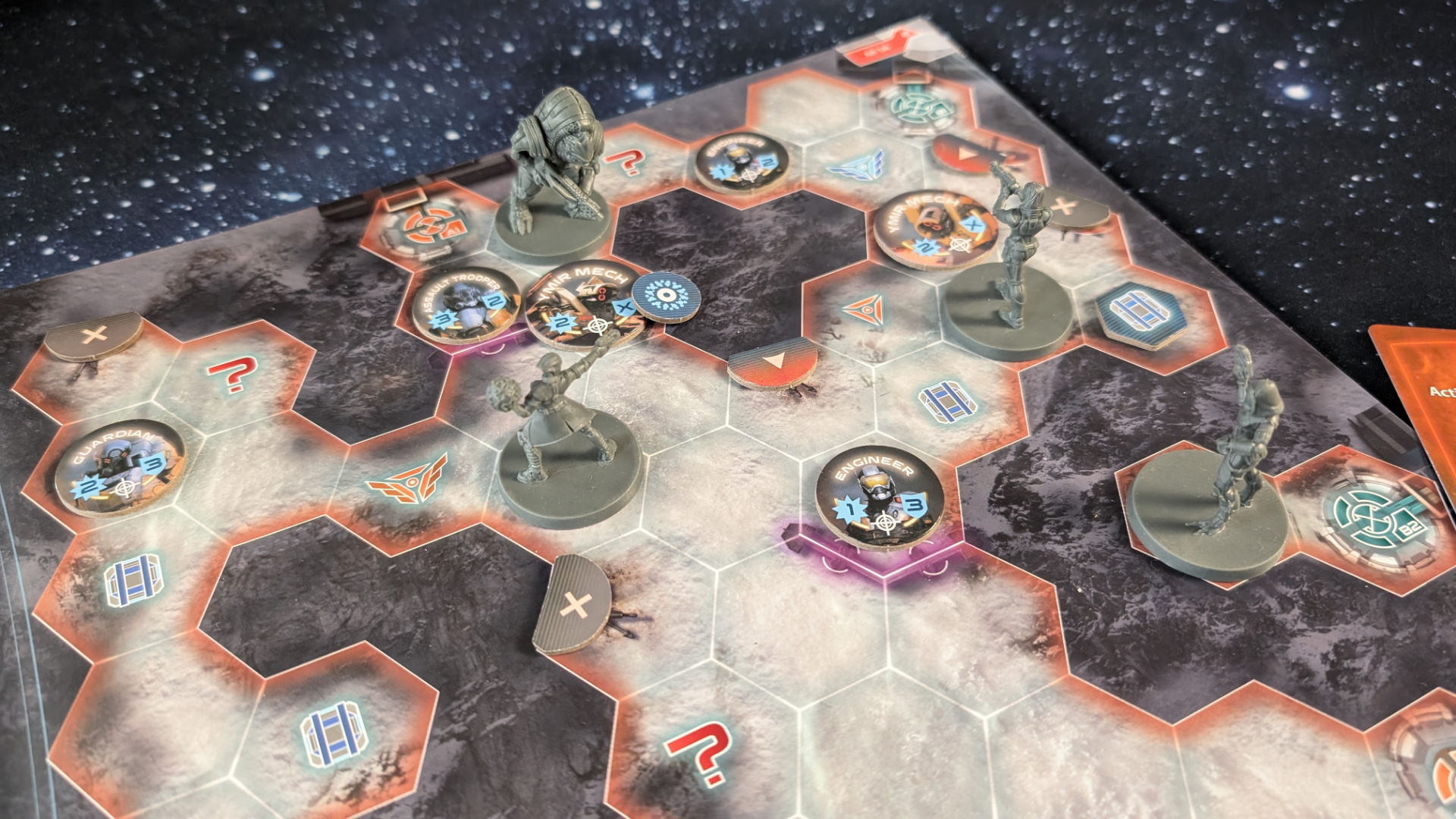
The Mass Effect board game does a fantastic job of translating the video game to the tabletop. The character abilities and upgrade trees give each cast member their own individual flavor, and the campaign mission structure lets you get invested as you progress. The turns fly by thanks to the slick dice-based action system, though there might not be enough tactical depth for hardcore board gamers.
I think the Mass Effect board game is an absolute must-play for fans of the series, and there is plenty to enjoy here for sci-fi board game fans who aren't yet familiar with the franchise.
Other board games to consider
If you're looking for sci-fi adventures and want something a little more challenging, then we can highly recommend Nemesis. It's basically the movie Alien brought to the tabletop, perfectly capturing the tone and suspense of the movie, and it's one of my favorite board games of all time. it's a lot bigger and more expensive than Mass Effect, but it's well worth your time.
The Captain is Dead is also a stellar option if you want a one-shot experience rather than a full campaign. It's a 2 to 7-player cooperative game where you defend your spaceship from invading aliens whilst trying to get the Jump Core back online. It has a beautiful 1950s sci-fi aesthetic and games only last around 60 to 90 minutes, making it ideal for casual gamers.







